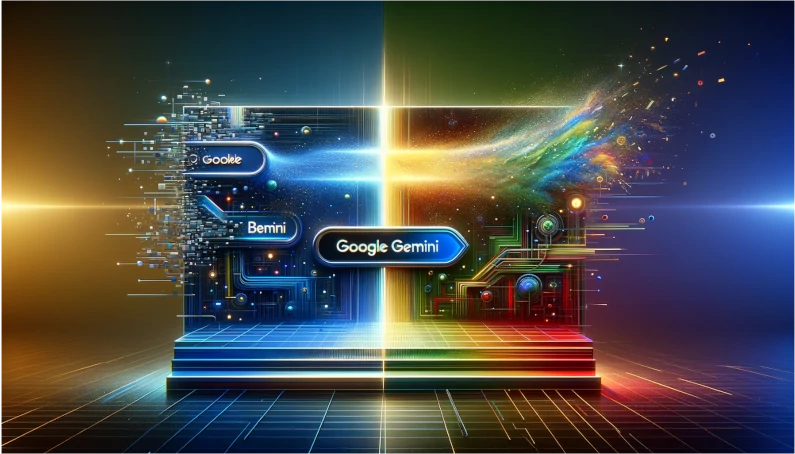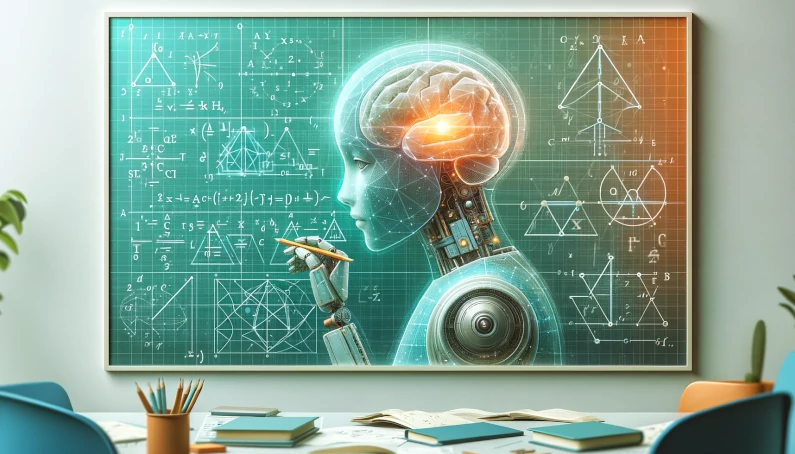Category: AI
-
Google Gemini: Yes to images of people with new security measures
Google has announced the release of new features for its AI image generation tool, promising significant improvements to ensure more accurate and confident representations. Google Gemini Restores Image Generation Google recently announced that it is reintroducing the generation of images of people for some Gemini AI users . This feature, temporarily suspended due to issues with correctly representing people,…
Written by

-
New in Chromebook Plus: Gemini, Help Me Write, and more
Google has announced that you can now find AI built right into Chromebook Plus laptops . Users can now chat with Gemini, reinvent their photos and more, all on these new devices. Starting today, new Google AI and gaming features are available on Chromebook Plus. Users can write like a pro with Help Me Write,…
Written by

-
Artificial Intelligence enhances, not replaces, SEO strategies: according to Sundar Pichai, CEO of Google
During a recent speech, Google’s CEO reassured SEO professionals of the continued relevance of traditional strategies despite the advancement of AI. Share your opinions! Last April 11, 2024, Sundar Pichai , head of Google, addressed the increasingly influential role of artificial intelligence (AI) in search technology. Directly addressing the concerns of the SEO industry ,…
Written by

-
Elon Musk Goes to War with Google: A Battle for the Future of Artificial Intelligence
Elon Musk has found a new target for his critiques: Google. The magnate is becoming increasingly vocal against the tech giant, particularly following the launch of Gemini, Google’s AI generator, which has sparked considerable controversy. Since Gemini’s introduction, Musk has shared and replied to over 100 posts about the company on the platform X, predominantly…
Written by

-
Google pauses AI-generated images of people after ehnicity criticism
In a move that has sparked debates and reflections in the technology world and beyond, Google has announced a temporary suspension of its new artificial intelligence model, Gemini, from producing images of people following criticism over the ethnic portrayal of historical figures such as Second World War German soldiers and Vikings. These portrayals, which included…
Written by

-
Google Bard becomes Gemini: a revolution in Google’s Artificial Intelligence
Google’s technological evolution is taking a significant turn with its AI chatbot, known until now as Google Bard, set to undergo a radical transformation by adopting the new name Gemini. This move marks not only a name change but also anticipates the integration of this artificial intelligence into an increased number of applications, promising to…
Written by

-
Google revolutionizes virtual assistance: Bard meets Google Assistant
Google is about to usher in a new era in artificial intelligence with the upcoming integration of Bard, its AI-based chatbot, into Google Assistant, marking the beginning of a profound transformation for the virtual assistant. This significant update comes at a pivotal moment, following a substantial staff reduction in the Bay Area and the removal…
Written by

-
AlphaGeometry: a revolution in automating olympiad level geometry problem solving
A study published in Nature introduces AlphaGeometry, an advanced system capable of solving Olympiad-level geometry problems without human demonstrations. This breakthrough marks a significant milestone in human-level automated reasoning, especially in the geometric field, known for its complexities and challenges in translating into machine-verifiable formats. A groundbreaking study published in Nature by Trieu H. Trinh,…
Written by

-
Google revolutionizes ADS with conversational AI
Google has recently innovated its Google Ads platform by introducing conversational artificial intelligence experiences, promising to make the creation of advertising campaigns faster and more intuitive. With the introduction of conversational prompts, marketers can now develop advertising campaigns more efficiently. Beta access to the conversational experience in Google Ads is currently available to English-speaking advertisers…
Written by

